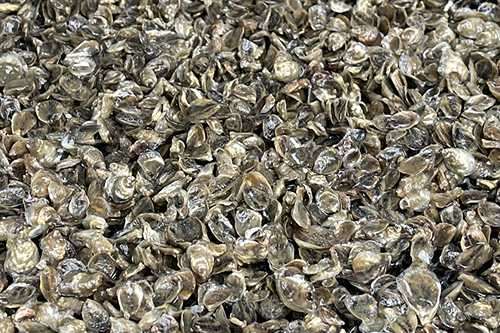Pacific oysters are a smart seafood choice because they are sustainably grown and harvested under state and federal regulations.

Alaska’s aquatic farming industry is relatively new—it only became legal in the state in 1988. Since then, the industry has flourished.
Want a meal that’s good for you and good for the planet? Pacific oysters farmed in the United States are a smart seafood choice because they are sustainably grown and harvested under state and federal regulations. Oysters provide environmental benefits by removing excess nutrients and improving water quality. They are low in saturated fat, and excellent sources of omega-3 fatty acids, iron, zinc, and vitamin B12.
Pacific oysters, also called the Japanese oyster, Miyagi oyster, or Pacific cupped oyster, are sustainably farmed in Alaska and the Pacific Northwest. They are the most cultivated species of oyster, originally introduced from Asia to 66 countries. They are the only non-indigenous species allowed to be imported to Alaska for cultivation. Pacific oysters take 18 to 30 months to develop to the market size of 70 to 100 grams (2.5 to 3.5 ounces; shell on) live weight. Pacific oyster growth depends on water temperature and salinity.
Oyster Health and Nutrition
Pacific oysters grow extremely well in Alaska where the cold water supplies abundant, high-quality plankton. Although native to warmer waters, they can match growth achieved by those raised in the Pacific Northwest because of these dense plankton blooms. When grown in warm waters, Pacific oysters reach sexual maturation during their second summer of life, causing them to become soft and milky in color which makes them unmarketable. The cold waters of Alaska slows their maturation, making high-quality oysters available year-round. The cold, clean water also reduces bacterial contamination, extending shelf life and boosting safety of cultured oysters, especially when eaten raw.
From a nutritional standpoint, oysters are low in saturated fat and excellent sources of omega-3 fatty acids and iron. They are also an excellent source of zinc—four times higher than beef—which is a proven immunity booster and may therefore help prevent colds and flu. Zinc helps proper brain functioning and promotes mental alertness. Oysters are a great source of vitamin B12, which is essential for maintaining nerve fibers and making red blood cells. One oyster can provide a week’s worth of many vitamins and minerals.
[content id=”79272″]








